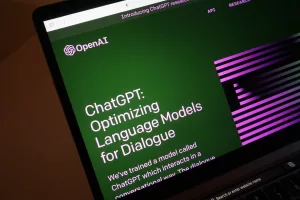“It is the mark of an educated mind to be able to entertain a thought without accepting it.” – Aristotle
The ability of an individual to critically think for themselves is an intrinsic quality of an intelligent being. Nevertheless, the lines between having received an education and being an intelligent person shall not be blurred; they are not interchangeable. While education may provide the individual with the tools to develop critical thinking skills, it does not guarantee them. For many, critical thinking has nothing to do with formal education, but rather individual capabilities to interpret information critically based on their life experiences alone. Despite access to education being more widespread than ever, there seems to be a downward trend in the ability of the individual to critically think. Namely, as the world is becoming increasingly connected, individuals are far more susceptible to the negative implications of the inability to deliberate and decide upon different topics for themselves.
As children, our parents always warned us not to believe everything that we saw online. Anonymous users could post anything they wanted while hidden behind the computer screen – a terrifying thought. However, time has passed and trust in the internet has, both consciously and subconsciously, gained legitimacy among the population. Those who once warned us of the dangers of the internet are now among the most susceptible to its swamp of misinformation.
I, as I am sure you have, had many conversations with people who are unable to give any evidence or support for what they are saying. I have also found myself falling within this category. With so much information being thrown at us as a collective, it is a frequent phenomenon to find yourself, or someone else, arguing a viewpoint that you have no ability to factually or ideologically support. This happens as a result of seeing news headlines, Tik Tok videos, or hearing a friend’s opinion, where an individual absorbs the information without taking a minute to critically think about what the statement entails, and the implications that it may have. Critical thinking involves the process of the individual entertaining the premise of the subject of interpretation, without the inherent need to accept it. While technical definitions name a long list of requisite thought processes to explain the term, critical thinking can be better understood as the comprehensive and analytical overview of a topic.
Having received formal education does not indicate that an individual has developed the ability to critically think for themselves. In other words, critical thinking is not directly aligned with receiving an education. Many students who graduate without having questioned their professors or the content of their textbooks, just floating by. If an individual does not have a question about the topics discussed, they are not applying the requisite analytical approach to actually learn anything. Critical thinking is the active decision to question the world around you and the refusal to take things for what they are at the surface level. On this same note, formal education is in no way a prerequisite for the ability to critically think. Think of the history of humankind; most people in history have not received what we define as formal education but have managed to make extraordinary discoveries in all realms. With that said, it is very possible that an uneducated person is more intelligent than an educated person, as intelligence should not be blurred with education. Going more philosophical, education does not necessarily mean formal education, but rather a congruence of life experiences that have led a person to a certain mind frame.
Nevertheless, the nature of the modern world makes it quite difficult to apply such critical thinking to every piece of information we come across. The information overload can be overwhelming to try to comprehend fully, so much so that it can be fruitless to attempt to do. To overcome this challenge, I recommend focusing on the information that you encounter most in your daily life. This can span from your passion and studies to the news and politics, essentially the elements of the media that appear most frequently in your life. If you have an opinion about something, be sure that opinion arises from the critical thinking process.
All that said, I urge every individual to question everything (within reason) before deciding whether or not to accept it. This process will force you to create a stance uniquely your own while giving you the ability to support your beliefs. As so much information reaches us everyday, it is becoming increasingly vital to familiarize ourselves with the process of critical thinking across all aspects of life. Do not believe point blank any statements made by (even your favorite) politicians, celebrities, influencers, or friends; believe your analysis.
Featured image retrieved from Unsplash.






